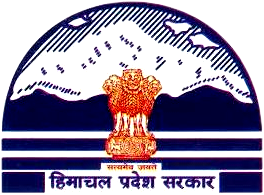Course outcomes of ECE 3rd sem
| MAFC-311 Probability Theory and Statistics | |
|---|---|
| CO1 | Develop understanding of basics of probability theory. |
| CO2 | Identify different distribution functions and their relevance. |
| CO3 | Apply the concepts of probability theory to different problems. |
| CO4 | Understand different numerical integration techniques, and numerically solve differential equations. |
| ECEPC-311 Electronic Devices | |
| CO1 | Understand and apply the principles of semiconductor Physics, diodes and biasing to electronic devices. |
| CO2 | Understand and utilize the different configuration of transistor for the analysis of Hybrid parameter. |
| CO3 | Appreciate different semiconductor devices for different applications. |
| CO4 | Understand and utilize the concept of semiconductor devices for solid state switching circuits. |
| ECEPC-312 Digital System Design | |
| CO1 | Understand the basic logic operations and combinational logic elements. |
| CO2 | Design and analyze combinational circuits. |
| CO3 | Design and analyze synchronous sequential logic circuits. |
| CO4 | Use HDL and appropriate EDA tool for digital logic design and simulation. |
| ECEPC-313 Signals and Systems | |
| CO1 | Identify the sources of signals, and systems in real life. |
| CO2 | Characterize different types of signals and systems. |
| CO3 | Represent continuous-time and discrete-time systems in different mathematical forms. |
| CO4 | Analyze system behaviour using time and frequency domain techniques. |
| ECEPC-314 Network Theory | |
| CO1 | Analyze the circuit using Kirchhoff's law and Network simplification theorems. |
| CO2 | Infer and evaluate Transient response and Steady state response of a network. |
| CO3 | Analyze electrical networks in the Laplace domain and understand concept of network functions and stability. |
| CO4 | Compute the parameters of a two-port network. |
| HS-311 Engineering Economics | |
| CO1 | Identify the determinants of supply and demand; demonstrate the impact of shifts in both market supply and demand curves on equilibrium price and output. |
| CO2 | Determine the roles that prices and markets play in organizing and directing economic activity. |
| CO3 | Calculate and graph the short-run and long-run costs of production, supply and demand elasticities. |
| CO4 | Describe governmental efforts to address market failure such as monopoly power, externalities, and public goods. |
| CO5 | Examine and interpret a nation's economic performance indicators such as economic growth, unemployment and inflation from a macroeconomic perspective. |
| CO6 | Articulate the mechanics and institutions of international trade and their impact on the macro economy. |
| ECEPC-311P Electronic Devices Lab | |
| CO1 | Understanding characteristics of elecronic devices. |
| CO2 | Implementation of the circuits experimentally based on the knowledge gained on semiconductor devices. |
| CO3 | Gaining practical knowledge of eletronic devices. |
| ECEPC-312P Digital System Design Lab | |
| CO1 | Understand the number systems and IC characteristics. |
| CO2 | Understand the Boolean algebra and its properties. |
| CO3 | Design and analyse the combinational logic circuits. |
| CO4 | Get grip on HDL syntax. |
| ECEPC-313P Signal and System Lab using Matlab/Python | |
| CO1 | Demonstrate proficiency in analyzing signals using Python/Matlab, including time-domain and frequency-domain analysis techniques such as Fourier transforms, filtering, and spectral analysis. |
| CO2 | Understand the characteristics of linear time-invariant (LTI) systems, including their impulse and step responses, transfer functions, stability criteria, and the effects of systems on input signals. |
| CO3 | Apply digital signal processing techniques such as sampling, reconstruction, and digital filtering to analyze and manipulate signals effectively. |
| CO4 | Develop hands-on experience in simulating and analyzing signal processing systems, enhancing their problem-solving skills in engineering and scientific contexts through practical exercises and projects. |





